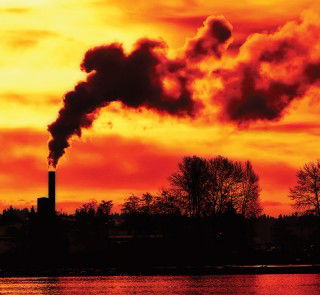This week Dangote Cement announced its intention to build a 1.5Mta grinding plant in Togo, having signed a contract with the country's government. The project is set to start in the 1Q20 and is scheduled to be completed by the end of 2020. The new plant can be expected to have a considerable impact on the local industry, which currently has a cement capacity of 1.65Mta.
While Dangote Cement has historically imported cement into Togo from Nigeria, it is a much bigger commitment to build a US$60m plant in the country where cement consumption is forecast at around 1.66Mta in 2019. Furthermore, Togo imports an estimated 0.35Mta of cement. The Nigerian multinational is backing the notion that market growth will follow positive economic indicators. The IMF has predicted that GDP will rise by 5.2 per cent in the next two years, with construction activity and cement demand increasing in line with this forecast.
The domestic cement industry
The largest existing player in the Togolese market is HeidelbergCement's Scancem International DA, which fully owns Cimtogo. Scancem operates the 1.5Mta clinker plant at Tabligbo under the Diamond Cement brand and the 0.75Mta Cimtogo grinding plant at Lomé. Scancem also owns a smaller 0.25Mta Awandjélo grinding facility in Kara, which was inaugurated by Cimtogo in July 2017.
HeidelbergCement is also looking to expand capacity and announced in April 2019 that it would invest US$28.2m in Cimtogo, Scantogo and Granutogo (an aggregate crushing unit), which will include a new grinding unit in Lomé.
In addition, WACEM is very active in Togo, owning a 1.8Mta clinker plant in Tabligbo. Moreover, the company has a joint venture with Scantogo, which runs a 0.65Mta grinding unit in Tabligbo.
CIMAF earlier announced that it would build an integrated plant in Togo. If the plan is implemented, this would put the Moroccan new entrant head-to-head with Dangote Cement.
One family name rules Togo
Togo is far from being a politically-stable country. When the government called for parliamentary elections in December last year, street riots ensued as the opposition had demanded reform of the national electoral commission as well as a two-term limit on holding office. President Faure Gnassingbé has been in power since 2005, when he succeeded his father Gnassingbé Eyadéma, who had been in power for 38 years.
Opposition leader Nathaniel Olympio of the Parti des Togolais says 85 per cent of Togo citizens do not have ID cards and 75 per cent are without birth certificates, making them ineligible to vote. Therefore, the outcome of the elections are a foregone conclusion, he claims.
Infrastructure development is slow
While national infrastructure is less developed outside the main port of Lomé, there are plans to improve the country's power supply. Eranove of France is building a 65MW power plant in Lomé, where much of the country's industry is located. The Chinese are also heavy sponsors in the country and Togo draws on the China-Africa Development Fund (CAD), which is supporting Togo's National Development Plan (PND) for 2018-22. This includes the expansion of the port of Lomé and an industrial park. CAD is also funding the Adjarala dam construction on the Mono River, which will be 40m high and generate 147MW of electricity. The project has been in the pipeline for more than a decade and should provide power for both Togo and Benin. The two countries currently import more than 80 per cent of their electricity from Ghana, Côte d’Ivoire and Nigeria.
Outlook
Last June, Togo's Prime Minister, Komi Sélom Klassou, announced a vision for the nation to become an emerging economy by 2030 (Vision Togo 2030), an ambitious programme as Togo remains an agrarian economy with 60 per cent of its 8m population involved in farming and agriculture accounting for 40 per cent of GDP. To achieve this vision, significant infrastructure development and other construction projects will need to be implemented. To meet this expected increase in buildings material demand, the cement industry will need to expand its production capacity.
